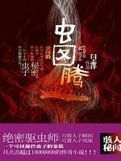狼图腾(英文版)-第5部分
按键盘上方向键 ← 或 → 可快速上下翻页,按键盘上的 Enter 键可回到本书目录页,按键盘上方向键 ↑ 可回到本页顶部!
————未阅读完?加入书签已便下次继续阅读!
grassland; they had learned to tend cows and sheep by themselves; but they were inpetent hunters; and in the nomadic existence of people in eastern Inner Mongolia; hunting ranks higher than tending livestock。 The Mongols’ ancestors were hunters in the forests surround—ing the upper reaches of the Heilong River who slowly migrated onto the grassland; where they lived as hunter…herdsmen。 Hunting was a sig—nifi cant and often a major source of ine。 On the Olonbulag; horse herders held the highest status among the herdsmen; and most of the hunters came from their ranks。 Hardly any of the Beijing students man—aged to rise to that level; and for those few who did; the best they could hope for was an apprenticeship to a full…fledged herder。 And so; on the eve of the big hunt; the students; who had begun to consider themselves a new breed of herdsmen; were left out pletely。
After finishing his meal; Chen took the gazelle leg Lamjav had given him and; somewhat dispirited; ran over to Bilgee’s yurt。
Even though the students now had their own yurt; Chen often went to visit Bilgee; whose yurt was larger; nicer; and much warmer。 The walls were hung with Mongol…Tibetan religious tapestries; and the floor was covered with a rug that had a white deer design; the tray and silver bowls on the squat table and the bronze bowls and aluminum teapot in the cupboard were polished to a shine。 In this remote area; where “heaven is high and the emperor far away;” the Red Guards’ fervent desire to destroy the Four Olds—old ideas; culture; customs; and habits—had not yet claimed Bilgee’s tapestries or rug。
。 最好的txt下载网
狼图腾(英文版) 2(5)
The four students in Chen’s yurt had been classmates at a Beijing high school; three of them were sons of “black…gang capitalist roaders” or “reactionary academic authorities。” They shared similar circum—stances; ideology; and disgust for the radical and ignorant Red Guards; and so; in the early winter of 1967; they said good…bye to the clamor of Beijing and traveled to the grassland in search of a peaceful life; where they maintained their friendship。
For Chen; Old Man Bilgee’s yurt was like a tribal chief ’s headquar—ters where he benefited from his host’s guidance and concern; it was a safe and intimate refuge。 There he was treated as a member of the family; the two cartons of books he’d brought from Beijing; especially those dealing with Mongol history; in Chinese and in English; had established a close bond between him; a Han Chinese; and his Mongol host; who often entertained guests。 Among those guests had been musi—cal performers whose songs were replete with Mongolian history and legends。 As soon as he saw Chen’s books; in particular those with maps and illustrations; Bilgee became interested in Mongol histories writ—ten by Chinese; Russian; Persian; and other scholars。 With his limited Chinese; he took every opportunity to teach Mongol to Chen; wanting to have everything in the books explained to him; he reciprocated by telling Mongol stories to Chen。 Over the two years; these conversations in Mongol and Chinese between the two men—one old; the other young—had progressed smoothly。
Chen did not want to leave Bilgee’s yurt; but the quantity of livestock kept growing on the lush pastureland。 The number of sheep in his flock; after the birthing of the latest batch of lambs; exceeded three thousand; far more than any one shepherd could tend。 So they were divided into smaller flocks; requiring Chen to leave his patron’s yurt and follow his sheep。 He and his three classmates set up a yurt and began living on their own。 Fortunately; the two camps were close enough that the bleat—ing of sheep and the barking of dogs in one camp could be heard in the other; so they met on their way out in the mornings and back at night。
A man could reach his neighbor’s place before his saddle was warm。 Chen often visited the old man’s yurt to continue their conversations; but now he wanted to talk about gazelles; and wolves。
Chen parted the door curtains; thick felt sewn into auspicious pat—terns with camel hair; and joined Bilgee in a cup of butter tea。
“Don’t envy people just because they’ve bagged gazelles。 Tomorrow I’ll take you out and you can get a wagonload of your own。 I’ve been up in the mountains the past few days; and I know where to fi nd them。 This will be the perfect opportunity to get firsthand knowledge of a wolf pack。 That’s what you’ve been wanting; isn’t it? You Chinese have the courage of sheep; who survive by foraging grass。 We Mongols are meat…eating wolves; and you could use a bit of wolf courage。”
txt电子书分享平台
狼图腾(英文版) 2(6)
Early the next morning; they traveled to a southwestern mountain slope; hiding themselves to watch。 The old man had brought neither a rifle nor a dog along; only his telescopes。 Chen had hunted with Bil—gee before; but only for fox; and this was the first time he’d gone out empty…handed。 “We’re not going to try to bring down a gazelle with a telescope; are we?”
The old man smiled and said nothing。 He was always happy when his apprentices came loaded with curiosity and doubts。
Finally; when Chen spotted the wolf encirclement through his tele—scope; the old man’s hunting plan became clear; and Chen was delighted。 Bilgee flashed a crafty smile。 Chen forgot the cold the moment he spot—ted the wolves; blood seemed to race through his veins; and the terror he’d experienced the first time he saw the big wolves vanished。
There wasn’t a breath of wind deep in the mountains; the air was cold and dry; and Chen Zhen’s feet were nearly frozen。 The blasts of cold air were getting stronger。 If only he had a wolf pelt to lie on! He turned to the old man and whispered something that had been bother—ing him: “Everyone says that wolf pelts make the warmest bedding you can find anywhere; and the people around here; hunters and herdsmen; kill plenty of wolves。 But I’ve never seen them in a herdsman’s home。 Why is that? The only pelts I’ve seen are a wolf… skin mat in the home of Dorji and a pair of chaps his father wears over his sheepskin pants; with fur on the outside。”
The old man replied; “Dorji is a northeastern Mongol。 They’re farmers who own a few cows and sheep; but they’ve been around Chi—nese so long they’ve begun following Han customs。 People who e here from the outside have forgotten the Mongol gods and their own origins。 When someone in their family dies; they put him in a box and bury him in the ground; instead of feeding him to the wolves; so of course they don’t see anything wrong with using wolf pelts as chaps。 Here on the grassland; wolf pelts are the thickest and the densest; so there’s nothing better for keeping out the cold。 Two sheepskins put together won’t keep you as warm as a single wolf pelt。 But we don’t use them as bedding。 We respect the wolves too much。 Any Mongol who doesn’t isn’t a true Mongol。 Out here; a Mongol would freeze to death before he slept on a wolf pelt; since doing so would offend the Mongol gods; and their souls would never go to Tengger。 Why do you think Tengger bestows its favors on wolves?”
“Didn’t you say that wolves are the protective spirits of the grass—land?” Chen Zhen asked。
“Right;” the old man said; his wide smile slitting his eyes。 “That’s it exactly。 Tengger is the father; the grassland is the mother; and the wolves kill only animals that harm the grassland。 How could Tengger not bestow its favors on wolves?”
There was movement in the wolf pack; and the two men trained their telescopes on a pair of wolves that had looked up。 The animals quickly lowered their heads。 Chen searched through the tall grass but saw no more movement by the wolves。
狼图腾(英文版) 2(7)
The old man handed his glass to Chen so that he could observe the situation with a full pair of binoculars。 The original double…tube glass was Soviet military issue。 Bilgee had found it on the Olonbulag twenty years earlier; on an old battlefield from the Soviet…Japanese war。 During World War II; a major battle between the Russians and the Japanese had occurred nearby to the north。 Toward the end of the war; the Olon—bulag had been the primary military artery for the Russo…Mongolian army into Manchuria。 Even now there were deep ruts left by tanks; as well as the hulks of Russian and Japanese tanks and armored vehicles。
Nearly all the old herders owned Russian or Japanese bayonets; can—teens; spades; helmets; binoculars; and other military equipment。 The long chain Gasmai used to tether calves came from a Russian army truck。 But of all the military equipment left behind by the Russians and the Japanese; binoculars were the herders’ favorite and had bee an important tool for production。
The herdsmen; who treasured things they could not produce them—selves; usually took the binoculars apart to make a pair of “telescopes;” for the reduced size made them easy to carry and doubled their usage。 “These have helped us in hunting;” Bilgee said; “and have made it easier to find lost horses。 But the wolves’ eyesight seems to have improved; and if you observe a wolf through one of these things; sometimes you’ll see that the he’s looking right back at you。”
One day after Chen had been living in the old man’s yurt for six months; Bilgee took a telescope out of the wagon box and handed it to him。
The Russian telescope was old and the copper nonskid surface had been worn smooth in places; but the powerful lens was of the highest quality。 Chen treasured the gift; which he wrapped in red silk; using it only when he was helping cowherds run down strays or horse herders find lost horses; or when he went hunting with Bilgee。
Chen surveyed the area through his telescope; his latent hunting instincts were awakened as he looked through his “hunter’s eye。” These hunting instincts had awakened too late in his life; he felt; and he was saddened to have been born into a line of farmers。 Farmers had bee as timid as sheep after dozens; even hundreds; of generations of being raised on grains and greens; the products of farming munities; they had lost the virility of their nomadic ancestors; going back to the legen




